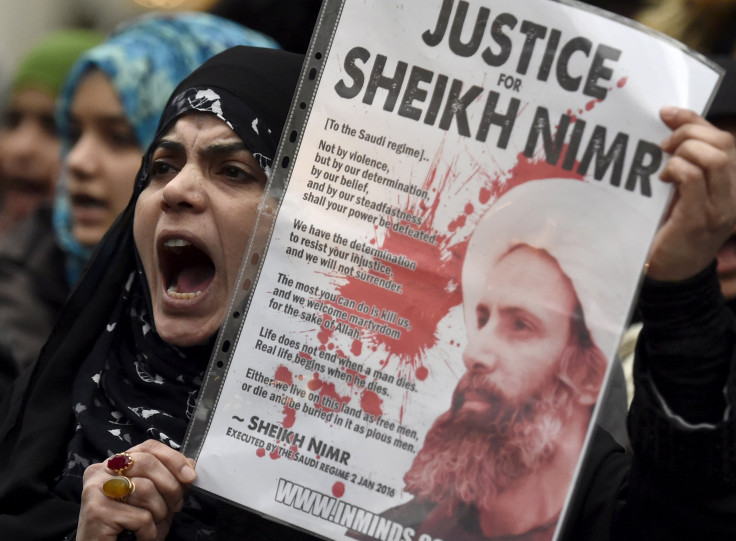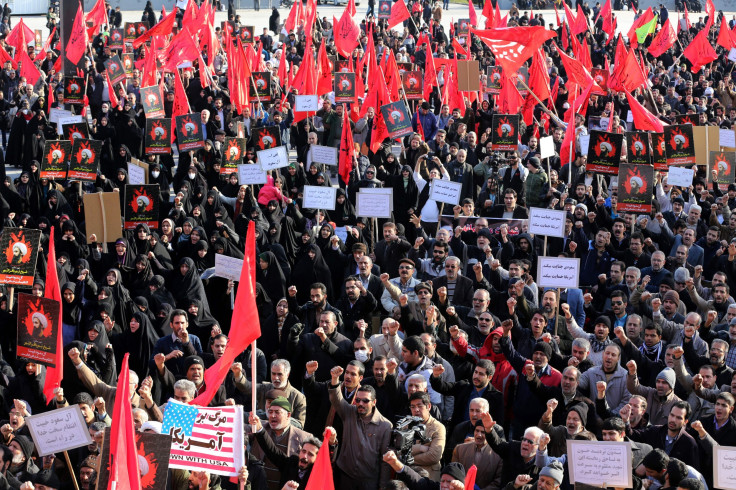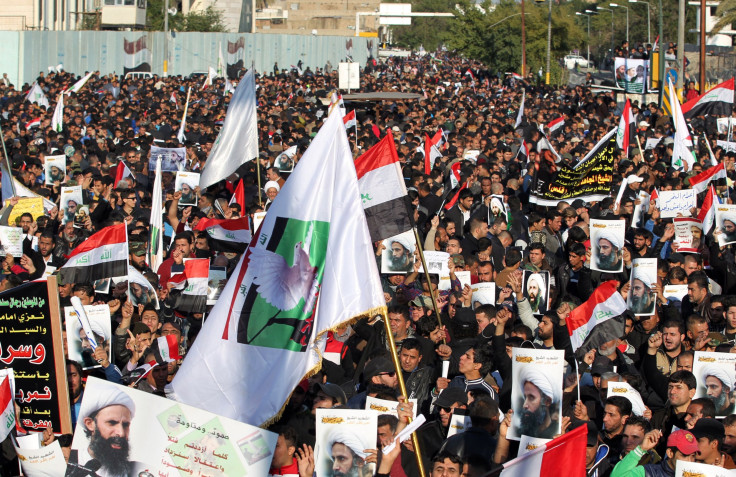Saudi Arabia-Iran Standoff Condemned, Saudi Envoy Says It Won’t Affect Syria, Yemen Peace Efforts

UPDATE: 3:58 a.m. EST -- Kuwait’s foreign ministry called back its ambassador to Iran after protesters in Iran attacked Saudi Arabia’s embassy in Tehran, Kuwait News Agency (KUNA) reported Tuesday.
The attack had come as a reaction to the execution of a prominent Shiite Muslim cleric Nimr al-Nimr on Saturday in Sunni Saud Arabia. A statement from Kuwait’s Cabinet had said Monday that the attacks were a "flagrant violation of the Geneva convention."
Original story:
The standoff between Saudi Arabia and Iran saw reactions from world powers including the U.S., Russia, China and the United Nations Security Council, who have now started to weigh in on the issue. Other Middle Eastern countries also began to take sides Monday, according to reports.
Relations between Shiite-ruled Iran and Sunni-led Saudi Arabia deteriorated after Riyadh executed top Shiite cleric Nimr al-Nimr on Saturday after he was convicted of terror-related charges. Hours after the execution, protesters in Iran attacked Saudi Arabia’s embassy in Tehran, following which Riyadh cut diplomatic relations with Iran.
Protests were also led by Iraqi Shiite cleric Muqtada al-Sadr in Baghdad against Nimr's execution where demonstrators burned American, British and Iraqi flags, the Associated Press (AP) reported. Saudi Arabia also canceled all flights to and from Iran and sent a letter to the U.N. Security Council blaming the Iranian authorities of failing to protect the former’s embassy in Tehran. Officials from both the sides have since defended their country's stands.
The Security Council condemned the attack on Saudi Arabia’s diplomatic premises "in the strongest terms" late Monday and asked all the parties "to maintain dialogue and take steps to reduce tensions in the region," the AP reported. U.N. Secretary-General Ban Ki-moon also called the foreign ministers of both the countries and asked them to avoid taking actions that could escalate tensions in the region.
The U.S. State Department and the White House appealed to both the countries late Monday to reduce tensions and expressed concerns that the strained ties could affect the fight against the Islamic State group in Iraq and Syria, the efforts to put an end to Syria's civil war, peace efforts in Yemen and the Iran nuclear deal.
"We don't want to see any progress that has been made or may be made on those issues affected by this, which is why (we) have been in communication with leaders there, to try to get tensions calmed down, to try to get dialogue started or restarted so that we can focus on these other very pressing issues in the region," State Department spokesman John Kirby said, according to the AP.
Matthew Rycroft, the U.K.’s ambassador to the U.N., said that the rift between the two sides could affect talks aimed at ending conflicts in Syria and Yemen. Rycroft reportedly said that "the absolutely crucial point is that everyone with influence uses it to ensure de-escalation."

Steffen Seibert, a spokesman for the German government, also asked both the countries to "use all possibilities to improve their bilateral relations." He added, according to the AP: "Relations between Saudi Arabia and Iran are of fundamental importance for solving the crises in Syria and Yemen, and for the stability of the entire region."
The Russian foreign ministry said Monday, according to CNN, that "Moscow is concerned about escalation of the situation in the Middle East with participation of the key regional players," and asked both sides to "show restraint and to avoid any steps that might escalate the situation and raise tensions including interreligious ones."
China’s foreign ministry said that it is paying close attention to the standoff between the two countries and hoped that "all parties can remain calm and restrained, use dialogue and negotiations to properly resolve differences, and work together to safeguard the region's peace and stability."
The diplomatic issue also spread to the Sunni-dominated Sudan, which expelled the Iranian ambassador and the entire Iranian diplomatic mission in the country, and also called back its representative from Iran, CNN reported.

Despite fears that the spat between the two countries may affect peace efforts in Syria and Yemen, Riyadh's envoy to the U.N. Ambassador Abdallah al-Mouallimi said Monday, according to Agence France-Presse (AFP): "From our side, it should have no effect because we will continue to work very hard to support the peace efforts in Syria and Yemen." He added that his country “will attend the next Syria talks and we are not going to boycott them because of Iran."
However, Mouallimi condemned Tehran’s role in the search for an end to the five-year civil war in Syria that has displaced thousands of people. "The Iranians even before the break of diplomatic relations have not been very supportive, not very positive in these peace efforts," he said, according to AFP. "They have been taking provocative and negative positions ... and I don't think the break in relations is going to dissuade them from such behavior."
Fawaz Gerges, chair of contemporary Middle Eastern studies at the London School of Economics, talked about how the conflict between Saudi Arabia and Iran could pan out in the future. "The situation is extremely volatile between the two most powerful states in the Gulf, Sunni-dominated Saudi Arabia and Shiite-dominated Iran. You have a war of words. You have war by proxies ... This really could get very ugly and dangerous in the next few weeks and next few months," Gerges said, according to CNN.
© Copyright IBTimes 2025. All rights reserved.






















